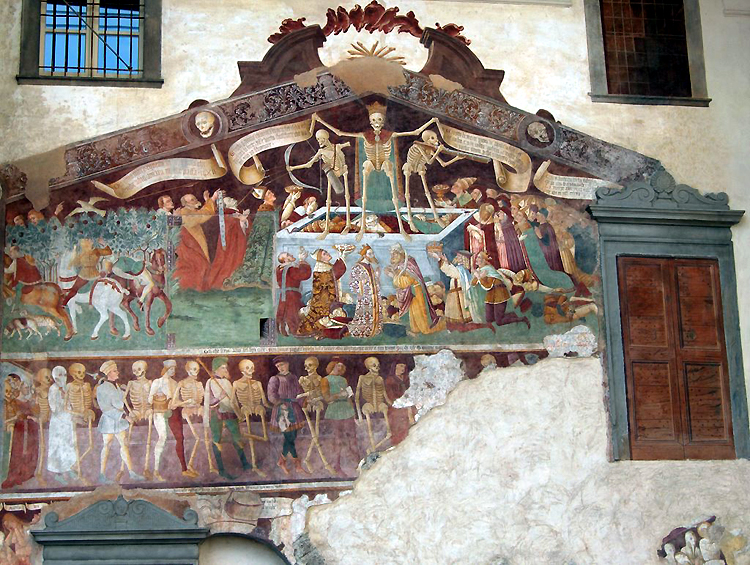Cycle of frescos representing the Triumph of Death and the Danse Macabre,
on the front side of the Oratorio dei Disciplini (“Oratory of
the Disciplined”), at Clusone, Bergamo, Italy. The work was realized
by the local painter Giacomo Borlone de Buschis in 1485.
During the Middle Ages, to feast the dead and celebrate their memory,
the anniversary day of their death was observed with great festive meetings
around their graves. It was common that cemeteries were the setting
for dances and feasting, processions and ceremonies, which were often
depicted on the walls of adjacent buildings. According to the historian
Jacques Heers, it is from these customs that originated the use of representing
in paintings the Danse Macabre, “simple artistic representation,
particularly edifying and morally elevating, and transposition of these
popular rituals” (Heers 1983, p. 73).
[Image: http://it.wikipedia.org/wiki/Oratorio_dei_Disciplini_%28Clusone%29]


